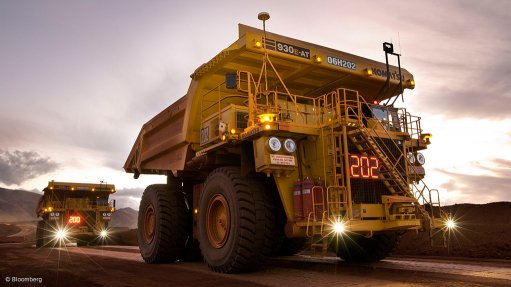
Photo by: Bloomberg
PERTH (miningweekly.com) – Scope 1 emissions from mining operations declined by 9.3% in the 2022 financial year (FY22), the Minerals Council of Australia (MCA) reported in its Climate Action Plan progress report.
The report covered the Scope 1 emissions from MCA full member mining facilities reported into the safeguard mechanism.
The report confirms that member emissions reported through the safeguard mechanism and the National Greenhouse and Energy Report scheme (NGERs) continued to decline during FY22 as the industry continued to make strong progress towards an ambition of net zero by 2050.
In the NGERs, MCA member’s Scope 1 and 2 emissions fell by more than 7% in 2022, the MCA said on Wednesday.
The safeguard mechanism applies to facilities with Scope 1 covered emissions of more than 100 000 t/y of carbon dioxide equivalent (CO2-e), while the NGERs uses a facility threshold of 25 000 t/y of Scope 1 and 2 CO2-e emissions and a corporate group threshold of 50 000 t/y of Scope 1 and 2 CO2-e emissions.
“The report reaffirms and demonstrates the mining industry’s continuing focus on reducing emissions as it works towards an ambition of net zero by 2050,” MCA CEO Tania Constable said.
“The industry has made substantial progress in the three years since the MCA launched the Climate Action Plan while supporting Australian jobs, and royalties and taxes to state and federal governments.
“Having established a strong base, Australia’s mining industry will continue to progress climate action initiatives and report regularly on progress.”
The report outlines the work industry is undertaking to develop and deploy low emissions technologies with more than 20 case studies showcasing company actions on the ground.
The case studies include progressing initiatives and innovations such as gravitational energy, mine electrification, climate planning, renewable energy, fuel swapping, carbon capture and storage, autonomous haulage and pumped hydro.